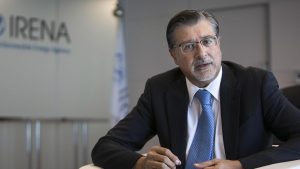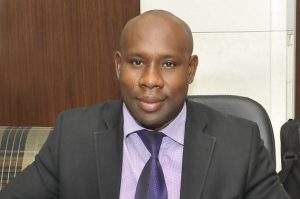Sidney Akinmoladun, is the founder and chief executive officer (CEO) of PaySolar247™, a Nigerian distributed renewable energy (DRE) firm. He recently shared his views on Nigeria’s DRE market with OGN, and made clear observations on why Nigeria is currently trailing behind the likes of Kenya, and other eastern African countries in the continent’s renewable energy market, vis-à-vis investors’ choice of destination. Excerpts.
It would appear that despite Nigeria’s huge market offerings, investors in DRE look first to Kenya and some eastern African countries before considering her, this thus gives them the leading edge in the continent’s DRE financing destinations, why is this?
Unarguably, Nigeria still remains the biggest market and economy in Africa, not only for imported goods but also for Foreign Direct Investment (FDIs), but sadly that hasn’t translated too much for the nation and her people. Sometimes, you want to ask yourself if what is supposed to be a blessing has now become a curse.
Our major setback is our over dependence on crude oil which forms over 80% of our source of energy for power generation; domestic cooking; and other purposes. The reason why countries like Kenya, South Africa and the likes are blazing the trail in RE are because the governments of these countries are more resolved and resolute. Until the issue of power is tackled with adequate political will, zeal and of course funding, we can only make progress that is best imagined only on papers.
In your view, what needs to quickly and systematically change to help this market leap?
Foremost of all will be, an aggressive government and private sector led intervention in form of policies, funding/financing and loan rebate for RE installations – be it residential; commercial; or utility scale.
Then, stop the importation of substandard equipment and materials; eradicate corruption from the award of contract to quacks and political cronies and opportunists; establish regulatory bodies and agencies that will continue to standardize the industry; organize exhibitions, conferences and seminars to keep the industry players abreast with latest technologies and global best practices that will see us attain the SDG’s with respect to energy generation and safer society.
Second of all will be, a massive enlightenment campaign on the use and benefits of RE compared to other sources of power generation that destroys our planet and third, will be a purposeful advocacy project, beginning from schools; communities; and cities, encouraging and educating more people on the need to switch from the traditional methods of energy generation to a more reliable; affordable; efficient; and accessible renewable forms of energy that will preserve our planet for a long time.
This market had initial issues with standardization, how much of damage did this do to it, do you have any suggestions on how to improve its service delivery?
Standards are the life and soul of any industry that wish to thrive and continue to remain relevant for a long time. The nation has grappled with both establishing and maintaining standard across industry sectors for a long time, until recently when things began to change.
We are still a long way to go when it comes to standard. The RE industry is not left out. Like the telecoms (NCC); food and drinks (NAFDAC); engineering (COREN); and manufacturing (MAN) sectors, a RE regulatory body has to be set up with the endorsement of both the public and private sector. This body must be empowered to be able to register; guide; standardize; and give out disciplinary actions against erring individuals or organizations.
Also the agencies at our nations ports of entry – customs and others, must be up and doing when it comes to checking the excesses of importers who bring in substandard products into the country. Government must also ensure that contracts are not just issued to political cronies, but to competent organizations with the ability to deliver on the job. With these, I am optimistic that we would have send a clear message that this market is no longer business as usual.
In this regards, what do you usually take away in your conversations and dealings with relevant government agencies?
Well, I can’t say much in this regard, but judging it from past experiences, the situation isn’t one to write home about.
What approach do you consider quite tenable in using RE to minimise Nigeria’s level of energy poverty?
Although a few RE projects have been installed and commissioned by this present federal government, but I dare say it is still a far cry from where we should be in terms of energy generation for a country with a population of over 170 million persons. Again there is a saying that, “government has no business in business”, however, what the government can do is to continue to create the enabling business environment, with the right policies, where both local entrepreneurs and foreign investors can actively play a major role in ensuring that more mini grids are established especially in the rural areas.
Government should also create environments for financial houses to grant single-digit loans to help citizens acquire RE installations in their homes and offices; grant tax break to investors who want to set up manufacturing/assembly plants; provide intervention funds for RE providers; create more awareness through massive media campaigns; discourage the use of generators and other fossil fuels that harm our planet; and that can be achieved through a mix of RE sources, especially with RE solar and wind energy. It is only a matter of time, and we won’t only cut the country’s energy poverty but move on to completely eradicate it.
Does this then suggest that the minimal availability of consumer financing models is a challenge to solar PV deployment in Nigeria?
Absolutely, it is a sort of holdback. Take for example, a man whose salary is not enough to get by, after taking out routine monthly expenses/deductions, he is left with nothing. So, how do you expect him to start paying for power again, when of course his primary concern for himself and his family is food; shelter; transportation; and clothing, amongst others.
Even those of us who provide this consumer product finance schemes are not finding things easy. The unreasonable interest rates we pay back on the loans we borrowed are transferred to the customer at the end of the day. If individuals and families are able to secure grants and soft loans from banks and micro finance banks to deploy this solution at home, with minimal interest rate, we may soon see a solar revolution leading to the end of the energy poverty in Nigeria.
Do you currently offer any consumer finance package in this regards?
We discovered from research results that people are most times comfortable when they know they don’t have to pay for a product or service all at once. At least they can spread the payment, while still enjoying the product and service. It is said that “to overcome any problem, you need to know the source”.
Having identified the problem, we came up with innovative packages we call bundle offers, and they include ‘Outright Purchase Plan’; ‘Easy Payment Plan’; and ‘Pay-As-You-Go Plan’. Each of our package or plan is designed to meet the budget needs of various categories of households and businesses.
Recently we added two more innovative bundles out of our basic package. They are known as ‘Level Don Change’ and ‘I Better Pass My Neighbor’. These packages come with a flexible payment plan and subscribers are expected to make a 50% down payment and spread the balance payment over a six to 12 months period. They are cheaper than the basic package. All our packages are inclusive of inverter; battery(s); solar panels; charge controllers; mounting kits; and installation charge.
You had a primary target when you started this, who were they?
When we started out, our primary target market was the salary earners and small business owners who always thought procuring a solar power installation was an expensive and costly idea. For every five persons you meet, at least three of them would tell you point-blank, “solar energy is a no go area for me”. But gladly that is changing by the day, especially with the fall in prices of solar energy components. Our focus hasn’t changed yet, at least for now. However, we service the residential; commercial; and utility scale kind of projects.
So far, what challenges are the most impacting on your business?
The RE market is relatively new, but it will amaze you that so much have been done in a short time. The major challenge still remains funding and pricing. Unlike other climes, where government provides soft loans and tax rebates for the RE sector, the reverse is the case in Nigeria.
More than 90% of individuals and corporations that have solar power systems installed in their buildings or offices, have had to do it 100% from their pockets. It is not news that we do not have manufacturing plants as at now for any of the system components in the country, meaning that everything is imported which also implies that with the current forex regime, prices of solar panels; deep cycle batteries; inverters; and other components will continue to be expensive.
We need to start manufacturing PV panels here and assemble inverters as well. The government, through the Ministry of Power, must see the diversification from natural energy sources like hydro; gas; and coal to renewable energy sources like solar; wind; and thermal as something that demands enormous efforts and political will to achieve.
On the industry’s advocacy, how would measure the roles its associations – SEPAN and REAN, as well as international coalitions have played so far?
I must first acknowledge and salute the efforts of these major bodies in the RE industry. As it is everywhere, relevant bodies and agencies are the guiding force for a productive; standardized; and vibrant industry.
SEPAN and REAN have contributed in efforts to get the mini grid regulation passed. Power for All, has made significant inroads in terms of advocacy that promotes the engagement of the private sector, communities, nongovernmental organizations and other stakeholders in achieving nationwide electrification and ending energy poverty.
These bodies can do better than the current state of achievement. They should embark on a nationwide campaign; bring more RE providers into the fold; let the government feel the pulse and make sure to pave the way for more FDIs in RE sector.





